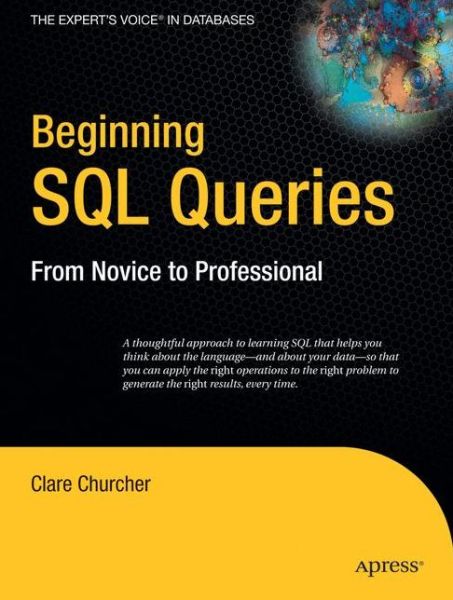Pdf ebook gratis download Beginning SQL Queries: From Novice to Professional 9781590599433
Beginning SQL Queries: From Novice to Professional. Clare Churcher

Beginning-SQL-Queries-From.pdf
ISBN: 9781590599433 | 240 pages | 6 Mb

- Beginning SQL Queries: From Novice to Professional
- Clare Churcher
- Page: 240
- Format: pdf, ePub, fb2, mobi
- ISBN: 9781590599433
- Publisher: Apress
Pdf ebook gratis download Beginning SQL Queries: From Novice to Professional 9781590599433
Overview
Clare Churcher’s Beginning SQL Queries is your guide to mastering the lingua franca of the database industry: the SQL language. Good knowledge of SQL is crucial to anyone working with databases, because it is with SQL that you retrieve data, manipulate data, and generate business results. Knowing how to write good queries is the foundation for all work done in SQL, and it is a foundation that Clare lays well in her book. Does not bore with syntax! Helps you learn the underlying concepts involved in querying a database, and from there the syntax is easy Provides exceptionally clear examples and explanations Is academically sound while being practical and approachable What you’ll learn Write simple queries to extract data from a single table Understand relational algebra and calculus and why they are important Combine data from many tables into one business result Avoid pitfalls and traps such as Cartesian products and difficulties with null values Summarize large amounts of data for reporting purposes Apply set theory to the problems of manipulating data and generating reports Who this book is for Beginning SQL Queries is aimed at intelligent laypeople who need to extract information from a database, and at developers and other IT professionals who are new to SQL. The book is especially useful for business intelligence analysts who must ask more complex questions of their database than their GUIbased reporting software supports. Such people might be business owners wanting to target specific customers, scientists and students needing to extract subsets of their research data, or end users wanting to make the best use of databases for their clubs and societies. Read More Show Less